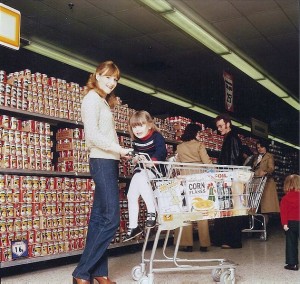Kurt Vonnegut pointed out that some of us get wicker furniture and some get bubonic plague. It seems counterintuitive, but perhaps the kindest thing we can do to help the plagued is to buy more twiggy chairs.
The idea that the best citizen is a good consumer isn’t a new one, though it’s always been complicated because of feelings of personal guilt and concerns about ecology. In his Aeon essay, “The Good Consumer,” Florian Schui, argues against the self-reproach, and while he acknowledges the environmental costs of free-market capitalism, he seems less worried about it than most. The opening:
“Westerners are constantly worrying about consuming too much and living too well. This is not a new concern. For at least the past 2,000 years we have worried about having to pay a price for prosperity. What is perhaps more surprising is that we continue to worry. During the first millennia of human existence, increases in consumption were extremely slow, but over the past 200 years or so industrialisation led to an unprecedented increase in prosperity in the West. This was topped off by a super-increase in the 1950s and ’60s. And yet, we have still not had our comeuppance. Instead, for most Westerners, the principal outcomes have been longer and more comfortable lives.
That said, the benefits of increasing prosperity are distributed highly unequally, making growing inequality perhaps the most pressing economic and social problem of our era. Consumption is one of the areas where inequality is felt most strongly, not so much due to excessive consumption at the top, interestingly enough, but because of increasing deprivation at the bottom. If we want to correct this imbalance, through redistribution, we need to recognise that this will inevitably result in a further substantial increase in overall consumption. That might be no bad thing, providing policymakers make the effort to understand the long tradition of criticising consumption that is almost as old as Western civilisation.”
Tags: Florian Schui

